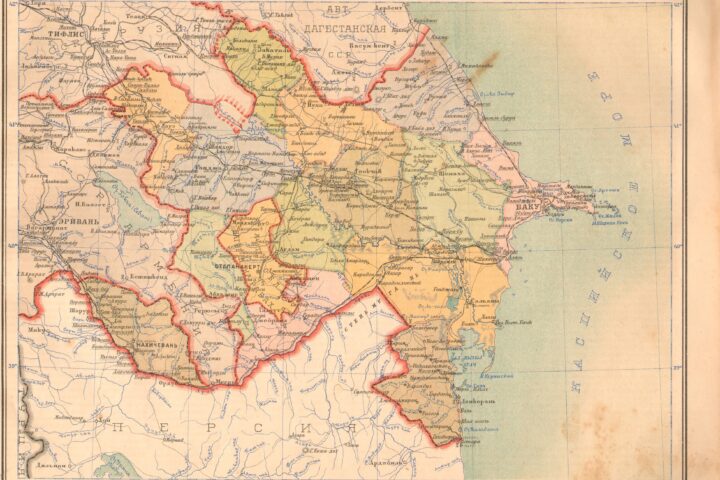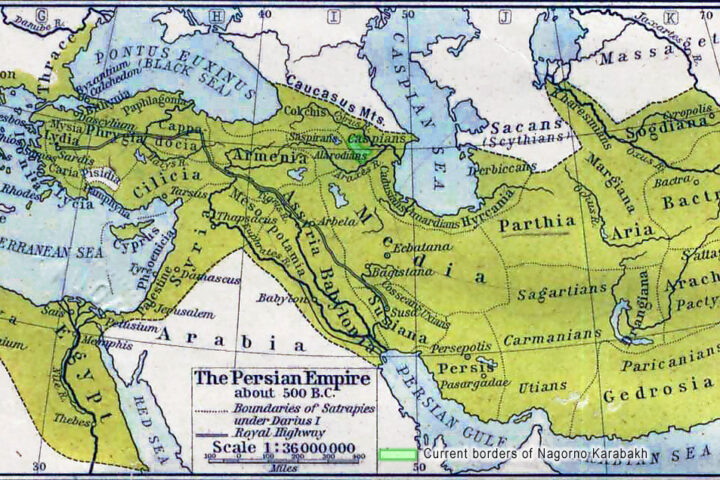Vladimir Dorokhin, the Russian ambassador to Baku, told a group in the Azerbaijani capital at the end of July that former Soviet leader Mikhail Gorbachev had “made a mistake on the Karabakh question” and, moreover, that “Azerbaijan deserves to know more about this.” As is often the case when a diplomat makes a statement about the past, Dorokhin’s remarks on this point are important not only and perhaps not so much as a contribution to historical understanding but also—and from the Azerbaijani perspective in particular—as an indication of Moscow’s current and future position on the resolution of the Karabakh conflict.
That is all the more so in this case because the ambassador’s comment came in response to questions posed by members of the Youth Social Chamber of Russia during their visit to Azerbaijan. Specifically, Dorokhin said, “Now already we can perfectly openly say that the leadership of the Soviet Union headed by Gorbachev made a mistake” on the Karabakh conflict, adding that that regime “simply incorrectly assessed this conflict and adopted incorrect means” to deal with it. [1]
Gorbachev has long had a bad reputation among Azerbaijanis. It was Gorbachev, after all, who sacked Heydar Aliyev from the Politburo. It was Gorbachev who ordered the Soviet Army into Baku in Black January. And it was Gorbachev who had a large number of ethnic Armenians among his advisors, most notably Academician Abel Aganbegyan, with almost no Azerbaijanis in this group.
But Dorokhin’s comments are about two other things, one far larger than the conflict over Karabakh and one specifically involved with that war. With regard to the former, Gorbachev, as Dorokhin and other Russian officials now appear ready to concede, simply did not understand the role of nationality in the Soviet system. Consequently, as many of them at least implicitly acknowledge, the former Soviet president did not understand that every one of his policies necessarily would have implications for the stability and even survival of the USSR. To put it in simplest terms, every one of Gorbachev’s policies would have worked had the country been mono-ethnic, but if the Soviet Union had been mono-ethnic, the USSR would not have been in the shape that it was in; and every one of those policies thus had the effect of contributing to the disintegration of that country, none more so that the specific approach Gorbachev adopted toward the Karabakh conflict.
Gorbachev’s approach to the Karabakh conflict in particular reflected that lack of understanding the ramifications of nationality in the Soviet system, especially given the way in which the Soviet Union was based on territorialized ethnic formations. On the one hand, while he was Soviet leader, Gorbachev routinely defended the existing territorial formations in public, but in an interview 18 months ago to Radio Free Europe/Radio Liberty, he indicated that in 1988, the Kremlin and presumably he as its leader “was prepared to give Karabakh” a new territorial status as “a republic,” something that would have represented at least a partial victory for Armenian aspirations and a clear defeat for Azerbaijan, even though he claims that Abdul-Rahman Vazirov, the Azerbaijani party chief at that time, was close to accepting the idea. Indeed, he said, the sides were “close” to accepting “a proposal” for “a Karabakh republic.” [2]
Had this issue been discussed in public, it would have infuriated many Azerbaijanis and raised questions in the minds of other nationalities as to where the Soviet leadership was heading. But because Gorbachev tried to solve this problem via closed politics alone, his apparent willingness to change borders and to upgrade the status of Karabakh—his Foundation said in a report released at the time of his interview that Moscow was ready to “allocate half a billion rubles” to overcome what it called the “neglected” development of that Azerbaijani region and to improve links with Yerevan—meant that many Soviet officials likely reached one of two conclusions, both of which presented a danger to stability.
On the one hand, at least some came to believe that the use of violence could force Moscow’s hand. After all, if Gorbachev was prepared to move in the direction the Armenians wanted, why shouldn’t other groups try the same thing? In a multi-national empire, such thinking could prove fatal. And on the other, at least some others concluded that Gorbachev couldn’t be trusted, that he was saying one thing and doing something else, a conclusion that meant his authority declined more generally.
At one level and perhaps the more important, Dorokhin’s comments simply represent a reaffirmation of Moscow’s current commitments—both unilaterally and as a co-chair of the OSCE Minsk Group—to the principle of the territorial integrity of Azerbaijan. But at another level, they represent a repudiation of Gorbachev’s remarks in March 2010 that while in 1988, “it was still possible to turn [Karabakh] into a republic,” now because of length of the conflict, Gorbachev said, it may not be possible to “return” that region to Azerbaijan and thus solve the conflict that way.
Notes
[1] See http://news.day.az/politics/279658.html (accessed 17 August 2011).
[2] See http://www.armeniapedia.org/index.php?title=Mikhail_Gorbachev (accessed 17 August 2011).





